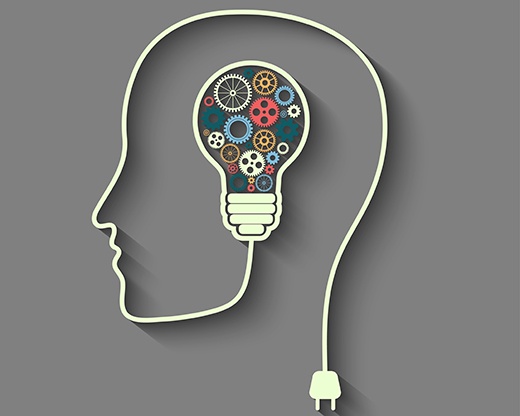In my work with people to help them learn about healthy foods and eating, it is clear that the focus on behavior change extends well beyond the food. Yes, learning about food labels, nutrients, and meal planning is key, but implementing behavior change is often the struggle. The expression “mind over matter” really is true as many of us know what to do, we just cannot seem to do it.
The concept of Mindset Training may help to explain individual barriers to lasting change. Mindset is a studied concept in the field of cognitive psychology used when trying to understand how one’s beliefs influence one’s behavior. To understand behavior, it helps to realize people see the world in different ways. Because of these differences, strategies for approaching lifestyle changes may also vary from one person to the next. Changing one’s behavior is also related to an individual’s belief that they have the ability to create meaningful change. There are many “negative” mindsets that affect the ability to stick with an exercise or nutrition program. Acknowledging these may be the first step toward what may help people make changes. Read on for the most common negative mindsets and why they might be a barrier to lifestyle change:
All or nothing thinking – A person sees a change as only black or white. They do not see the value in small steps and gradual progress, and even a small misstep can derail progress.
Overgeneralization – A person views a negative event as a never-ending pattern. They extend a negative view to other areas, and this impedes change in other areas of their lives.
Mental filtering – A person dwells on the negative. They cannot see positives and how these can move them toward lasting change.
Jumping to conclusions – A person makes quick judgements based on little fact and may assume people are acting negatively towards them and doubting their abilities. They may also quickly predict something will not work before even trying.
Magnification or minimization – A person either blows situations out of proportion or shrinks their importance. Either way, a situation is not seen in reality.
Emotional reasoning – A person’s reasoning is based mainly on emotion, not fact. Emotions guide their actions and they cannot see the situation from a more broad perspective.
Personalization and blame – A person may blame themselves or other people for things not entirely their fault. This prevents them from moving past things out of their control and focusing on what can change.
Even with an understanding of different negative mindsets, lifestyle and behavior changes are difficult. But, seeing some of these in yourself or others may be the start to understanding what gets in the way of lasting behavior change. With awareness you can begin to navigate around these barriers and get on with healthy behaviors that positively influence your life.
For more information, check out the book Mindset: the New Psychology of Success by Carol Dweck and Feeling Good: The New Mood Therapy or The Feeling Good Handbook, both by David Burns who are popularizing this concept which has its foundation in the work of Albert Ellis and Aaron Beck.
Adapted from Archer, Shirley, JD, MA. “What is Mindset Training?” IDEA Fitness Journal, Jul-Aug 2016, pp 83-91.
